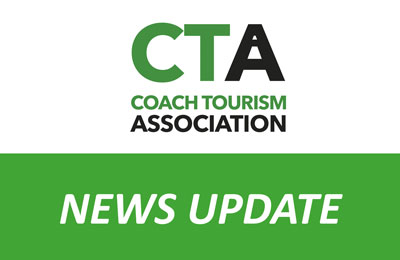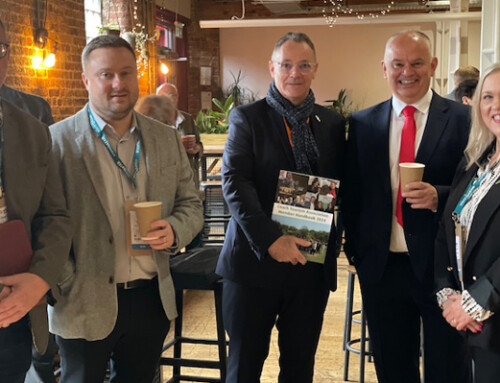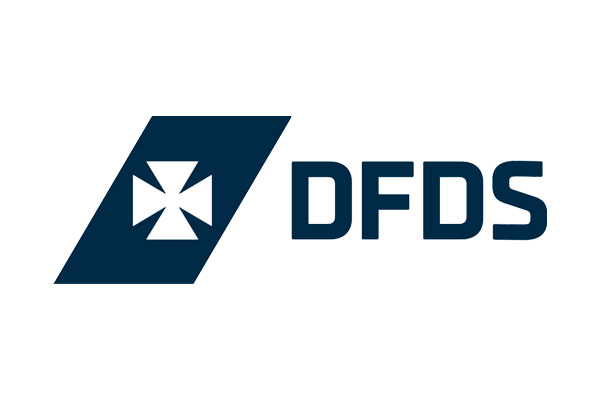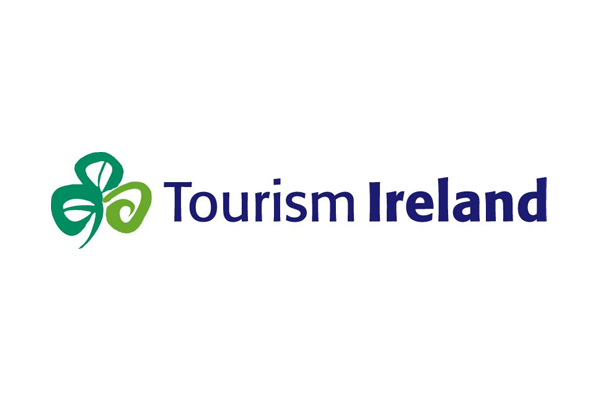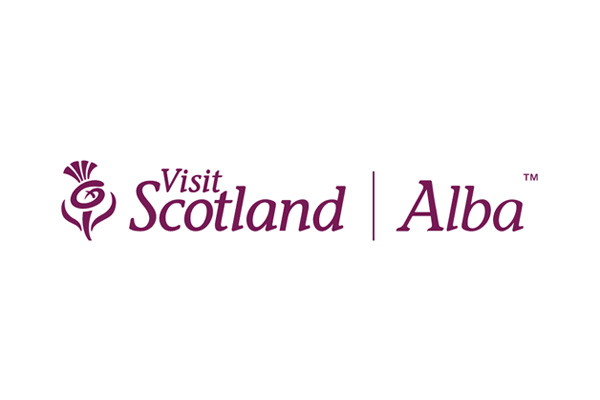COVID-19 Updates – week commencing 19/04/21
More updates of developments from the government and various links to interpretation and guidance.
Go to date:
19 April 2021 …
Tourism Alliance update:
Heritage Locations Guidance Updated
The primary guidance for heritage locations has been updated to take account of the relaxations associated with Step 2 of the roadmap. There is nothing that is particularly new in the guidance but there has been an ongoing issue with regard to wedding show arounds which are not able to be undertaken until 17th May unless the property has a permitted reason for being open. The permitted reasons include there being visitor accommodation or the venue holds business meeting which are able to take place currently. Therefore, if you have a heritage venue that hosts business meetings or has visitor accommodation, then wedding show rounds are able to take place during Step 2.
https://www.gov.uk/guidance/working-safely-during-coronavirus-covid-19/heritage-locations
Performing Arts Guidance Updated
Similarly, the primary guidance for the performing arts has been updated to take account of Step 2. Again there is nothing that is particularly new in this guidance – in Step 2, Performing arts venues, including theatres and concert halls can only be used by performing arts professionals to rehearse and train, and perform (without an audience) for broadcast or recording purposes. Indoor dance and fitness studios can be used for professional and non-professional use in line with social contact rules.
https://www.gov.uk/guidance/working-safely-during-coronavirus-covid-19/performing-arts
ONS Economic Indicators
The Office for National Statistics has released another report on various economic indicators that it is using to measure the performance of the UK economy. One of the more interesting is an estimate of the number seated diner reservations for 12 April 2021 which is 79% of the level seen on the equivalent Monday of 2019. This is somewhat surprising considering the number of restaurants that are not yet open and the businesses that are open are limited to outside dining but probably indicates the pent-up demand for people to dine out after the lockdown.
The other finding of note in the research is that online job adverts on 9 April 2021 equalled their February 2020 average level to become the highest level seen since 6 March 2020. This was partly driven by an increase to the “catering and hospitality” category, which also reached its highest level since March 2020
European Social Fund Q&A Updated
For anyone involved in a ESF project, the associated Q&A has been updated. The new questions include:
Due to the lockdowns, my project will underspend – will this money automatically be lost to the project?
My project has been approved and a Funding Agreement has been issued. I have significant reservations about starting my project at this time and wish to review the options available. What does the ESF Managing Authority advise?
What is happening with Calls that are expected to be launched in the future?
What is happening with project applications that have been submitted to the Managing Authority?
Where activity is significantly delayed or ceased as a result of COVID-19 disruption, has consideration been given to extending projects?
20 April 2021 …
Tourism Alliance updates:
Local Authority Grant Allocations
BEIS has published updated data on the allocation of Restart Grants to each Local Authority in England as well as updating the data on how much of previous allocations each local authority has distributed to businesses in their area.
As you will remember for when the last figures were released for the period to 16th January, many of the local authorities had distributed very little ARG funding as they had been told by Government that it would have to last until 1 April 2022 and that we encouraged them to distribute this funding as soon as possible.
The new figures, which are to the 1 March 2021, show that many local authorities have significantly increased the allocation of ARG funding. However, there are still a significant number of local authorities that had still not allocated most of their ARG funding. Some examples include:
-
- Stratford upon Avon
- has distributed just 2% of the £3.8m that they have received from Government
- Southampton
- has distributed just 3% of the £7.3m that they have received from Government
- Kingston Upon Thames
- has distributed just 3% of the £5.1m that they have received from Government
- Medway
- has distributed just 1.5% of the £8.0m that they have received from Government
- Stratford upon Avon
While these local authorities could well have significantly increased their distribution of ARG funding since 1 March 2021, the fact that they have taken over three months to distribute just 3% of the funding that they have received suggests that these local authorities need to do more to ensure that they allocate their ARG allocations before the 30 June deadline.
Revised ARG Guidance
While we are on ARG guidance, BEIS has updated the guidance to Local Authorities. As you will be aware, the Government has stated that Local Authorities will only receive the next tranche of ARG funding if they distribute the funding from the first two tranches by 30 June 2021. To clarify this requirement, the guidance has been updated to define “spend” as all funding defrayed or where there has been a validated attempt to defray the funding – a “validated attempt” to distribute this funding being:
-
- Where a payment has been made to an incorrect bank account and has been rejected; the grant can be classed as a validated attempt as long as a further attempt to pay will be made immediately upon discovering the error
- Where an application has been approved and the payment has been made, but due to a technical error the payment did not process, this can be classed as a validated attempt as long as payment was made on discovery of the error
- Where a payment has been processed, but is on hold by the bank, due to verification checks being undertaken, this can be classed as a validated attempt to make payment
- Where a contract has already been signed to provide a service (prior to the date of this guidance being updated on 15 April 2021), such as for business support activity, even if that funding is not yet spent
Event’s Research Programme
The Government has published more information on the Events Research Programme, which is one of the four work streams established by Government to inform decisions on, certification, social distancing, International travel and restarting events. The aim of the research is to determine how a combination of testing and covid secure management can inform decisions on safely lifting restrictions at events.
The key points in the update are that:
-
- the first phase of 10-15 pilots are being held in April and May to inform decisions on the safe removal of social distancing from Step 4
- The pilots will be run across a range of settings, venue types, and activity types so that findings could support the full reopening of similar settings across multiple sectors
- The programme is overseen by an industry-led steering group co-chaired by Sir Nicholas Hytner and David Ross and working closely with national and local public health authorities.
- A Joint Programme Board will work across government to inform policy development on reopening sectors ahead of Step 4
- The ERP will look at a range of mitigating factors including test-on-entry protocols for use in determining how we can reopen larger venues safely
- The first pilot events are
- B FA Cup Semi Final, Wembley Stadium
- World Snooker Championship, Sheffield Crucible Theatre
- Luna Cinema, Liverpool
- League Cup Final
- ACC Business Event, Liverpool
- Circus Nightclub, Liverpool
- FA Cup Final, Wembley Stadium
- Outdoor gig, Sefton Park Liverpool
- Findings will be reported to the Prime Minister to feed into wider discussions around Step 4 of the lockdown restrictions.
Updated Events Guidance for Councils
While on the subject of events, the guidance for councils on events that are able to take place has been updated to include a new section on organised sporting events. This section states:
Organised sports participation events include but are not limited to: organised running events, organised cycle races and rides, organised walks.
Organised sports including organised sports participation events are not subject to the capacity cap or social contact rules stated above. However, sporting events that are intended to attract spectators (including ticketed events), or events that are likely to a significant number of spectators (e.g. a major marathon) should not take place in a public space, or on private land, until Step 3.
As with Step 1b, spectators are not permitted to attend grassroots or professional sporting events taking place on private land, other than for safeguarding reasons or for providing care or assistance to a person with disabilities participating in an organised sporting event or activity. They should maintain social distance and not mix with other households.
This does not prevent people from viewing recreational or organised sport that is taking place in a public space (e.g. a park) at Step 1b or Step 2, in groups of up to 6 people or 2 households.
Revised Covid Secure Notice for Businesses
The Covid Secure notice that businesses can use in their workplace to show that they are abiding by the Government’s Covid-Secure guidance has been revised to include a section on ventilation. This states:
We have taken all reasonable steps to provide adequate ventilation in enclosed spaces
Business Support Guidance Updated
The guidance for businesses on what support is available has been updated to include an new video about the Coronavirus (COVID-19) Job Retention Scheme and a webinar for Self-Employment Income Support Scheme (SEISS)
You can sign-up for the webinar, which is 1:45pm – 2:30pm on 28th April, on the following link
https://register.gotowebinar.com/rt/3667545685723120643?source=Apr-HMRC-GOV
Self Isolation Compliance Checks
The Government has updated the guidance on self-isolation compliance checks which are being increased to make sure that those people arriving into the country stay at quarantined for at least 10 days. The guidance now states that officials that are checking compliance will ask to see the person’s driver’s licence or passport to confirm your identity.
https://www.gov.uk/guidance/self-isolation-compliance-checks-after-international-travel
Visiting a Passport Office
New guidance has been published to state that people should only visit a passport office if they have an appointment and should not do so if:
-
- they or someone they live with has coronavirus or coronavirus symptoms
- they have been told by the NHS Test and Trace service that they have been in contact with a person who has coronavirus
- they have recently returned to the UK from abroad and are quarantining
A friend or family member can attend on behalf of someone who cannot make the appointment but will need to take:
-
- the applicant’s old passport
- a signed and dated letter from the applicant authorising them to attend
- the applicant’s signed and dated application form If the appointment is to apply for the Fast Track service
- valid ID if the appointment is for the Online Premium service
https://www.gov.uk/guidance/visiting-a-passport-office-during-the-coronavirus-pandemic
21 April 2021 …
CPT operations update:
PRIVATE HIRE COACH TRIPS
GUIDANCE FOR OPERATORS
In line with the general guidance for Step 2 of the Roadmap in England to minimise travel, the Government has made clear that it does not wish to see Private Hire journeys for leisure purposes operate before Step 3, and although CPT believe that these journeys can be operated in a COVID secure manner the guidance currently is that these trips should not operate
However this guidance does not restrict operators providing educational, essential worker and other non-leisure related transport to customers
Most importantly, following our discussions with officials we are also of the view that coach day trips/excursions which share the characteristics of scheduled services (scheduled timings, pre-arranged drop-off/pick-up points etc) will also fit within the guidance and therefore can continue to operate
The definition of a scheduled service that the Department has provided to us is one “from a designated starting point to a designated destination point, with fixed designated intermediate stops where different passengers may board or disembark”
These services are interpreted as performing a public transport function and day trips meeting this definition are therefore permissible
We remind members that the Safer Transport Guidance still applies and should be followed at all times, and also that the Governments overarching message to minimise travel will remain until at least step 3 of the Roadmap
It should also be noted that because of Department for Digital, Culture, Media & Sport (DCMS) guidance to the Visitor Economy, many venues and attractions may not allow people to travel there on an organised coach trip
We will continue to talk to Government to ensure that any further guidance that is issued does not unfairly impact the ability of members to operate coach journeys
Tourism Alliance updates:
DMO Review Seminar
Not Coronavirus related but here is the DMO seminar onto youtube.
https://www.youtube.com/watch?v=5OZWbBxOlU4
BEIS Coronavirus Fraud
A number of businesses have received a fraudulent letter purporting to be from BEIS (see attached image) stating that they need to purchase air purifiers as part of the requirements for reopening customers. The department has sent out a tweet stating that this is a scam and that businesses receiving such a letter should report this to Action Fraud
Exemptions From Managed Quarantine
The DoH issues guidance yesterday, and updated it today, on exempting people from managed quarantine (ie hotel quarantine) for medical or compassionate reasons. For medical reasons. The kinds of medical conditions and supporting evidence that may be considered to require an exemption from managed quarantine might be:
-
- A debilitating breathing difficulty where regular physiotherapy is necessary to support the lungs, or daily access to oxygen or a nebuliser might be required, and a physiotherapist or consultant advises it is not possible to manage in a managed quarantine facility
- A severe mental health condition where a psychiatrist (for example) advises it would not be possible to maintain stability within a managed quarantine facility and emergency treatment may be required
- Severe cognitive disability that makes it unlikely an individual may be able to maintain personal hygiene and may become distressed if left alone, on the advice of a registered healthcare professional of suitable clinical expertise
Where the exemption is for a young person under the age of 18 who is travelling with a parent/guardian or carer, an exemption may also be given to the person accompanying them if either:
-
- there is no means of alternative care evidenced for that minor in the home environment
- the individual is physically unable to care for themselves and is travelling with a carer, there is evidence that there is no alternative provision, and it is advised that it is essential for that carer to quarantine with the individual
However, if a medically exempt individual is a minor, and travelling with more than one parent, or a larger household, only one parent/guardian/appropriate adult will be permitted an exemption and the rest of the household will be required to enter managed quarantine.
In terms of compassionate exemptions, these will only be granted in extremely limited circumstances, where it is not possible to accommodate a visit to a severely ill or dying relative or member of their household from within managed quarantine.
https://www.gov.uk/guidance/exemptions-from-managed-quarantine-for-medical-and-compassionate-reasons
Transport Use
DFT have published the first week’s data on transport use since the “Stay at Home” restrictions have ended and people are now able to visit non-essential retailers, tourism destinations and outdoor attractions for leisure and tourism purposes. The figures show an increase in activity but, apart from private vehicle use, are nowhere near normal. While private vehicle use was around 90% of normal from the 12th – 18th April, National Rail increased from 27% to 34% of normal and bus travel in England struggled to get much over 50% of normal. In London, the tube remains low at around 35% of normal. So while there has been an increase in people getting out of home, this isn’t as significant as might have been expected and public transport is being shunned for private vehicles.
https://www.gov.uk/government/statistics/transport-use-during-the-coronavirus-covid-19-pandemic
Self Isolation Compliance Checks
There has been a very minor amendment to the guidance on how compliance checks will operate. That guidance now states that, to check someone’s name, compliance staff “will state your name and ask you to confirm it” – which begs they question, how were they proposing to check someone’s name previously ?
https://www.gov.uk/guidance/self-isolation-compliance-checks-after-international-travel
